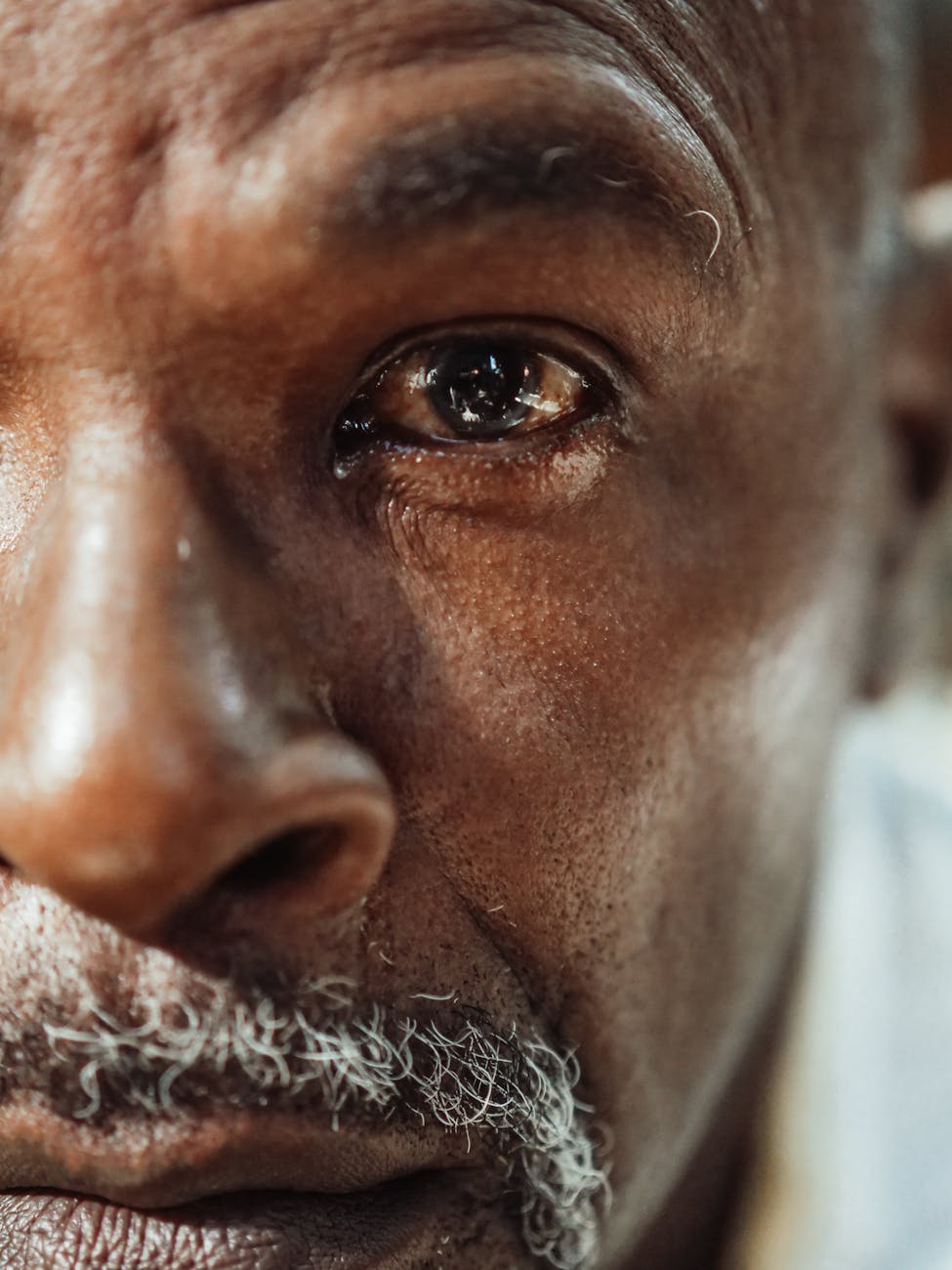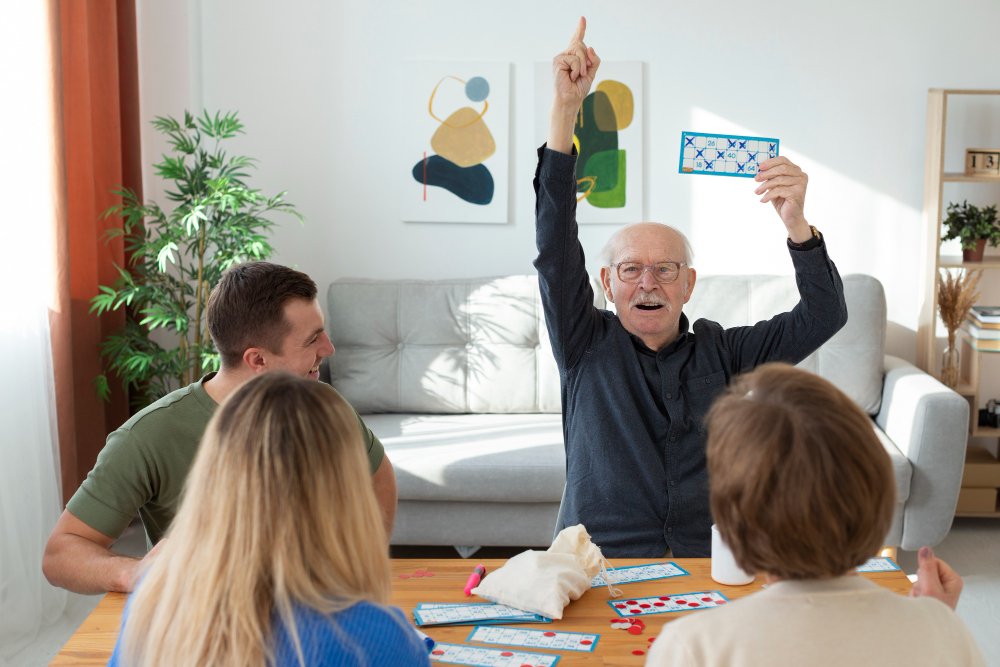What Is Grief?

Grief is the natural, whole-person response to a meaningful loss. It touches thoughts, emotions, body, behavior, relationships, and even spirituality. For older adults, grief can be triggered by a single life event (like the death of a spouse) or a cascade of changes over time.
Forms of grief:
🕰️ Prolonged/Complicated grief (PGD): persistent, intense grief that impairs daily life months after a loss. Representative national samples suggest PGD affects roughly 3–5% of bereaved people.
👁️ Disenfranchised grief: grief that isn’t recognized by others (e.g., after losing a companion, pet, or independence).
⏳ Anticipatory grief: mourning that begins before a loss (e.g., a partner’s declining health).
🌿 Integrated grief: over time, the loss becomes part of one’s life story; pain softens and functioning improves.
⚡ Acute grief: intense waves early on, with yearning, sadness, disrupted sleep and appetite.
Common Losses in the Golden Years (60+)
While death of loved ones is the most visible loss, many 60+ adults navigate multiple, overlapping losses that compound grief:
💑 Spousal/partner loss & widowhood – often reshaping identity, routines, and finances. In South Africa, 38.1% of people aged 60+ were widowed in 2021
🏠 Independence & home transitions – needing assistance, relocating, downsizing, or losing a long-time home.
🏃 Health and functional loss – mobility changes, chronic illness, pain, sensory losses (hearing/vision).
🎯 Role and purpose shifts – retirement, empty nest, fewer caregiving roles, or caregiver role reversal.
🌍 Community & cultural losses – migration of family, reduced community engagement.
👵 Loss of peers/siblings/close friends – as social circles thin.
💰 Financial insecurity – after retirement or a partner’s death.
🐾 Pet loss – deeply felt, especially for those living alone
How Grief Affects Mental Health
Depression & anxiety: ~14% of adults 60+ worldwide live with a mental disorder; depression and anxiety are most common. Globally, 27% of all suicide deaths occur among people aged 60+.
Depression prevalence in later life: ~5–7% in adults 60+, higher with age and in institutional settings.
Prolonged Grief Disorder (PGD): ~3–5% of bereaved people, higher in clinical samples.
Sleep disruption: Grief is strongly linked to insomnia and fragmented sleep; it worsens inflammation and health in older adults.
Why this matters: Sleep loss, low mood, and anxiety can sap motivation, impair decision-making, increase isolation, and complicate other medical conditions.
💔Emotional Landscape
- Yearning, sadness, disbelief, and a sense of “unreality.”
- Loneliness even in a crowd, as routines vanish with a partner’s absence.
- Guilt / “if only…” thoughts after caregiving or sudden losses.
- Irritability, anxiety, or numbness instead of visible tears.
- Spiritual questions: purpose, meaning, and legacy.
When to seek help: Persistent, intense grief beyond the expected mourning period may signal PGD, which is treatable with specific therapies.
❤️ Physical Health Effects
- “Widowhood effect” (mortality risk): 41% higher mortality in the first 6 months after spousal loss; 14% thereafter.
- Heart & stroke risk spikes: short-term increase after bereavement.
- Sleep & inflammation: disturbed sleep may increase inflammatory markers, compounding health risks.
Takeaway: Early weeks/months after loss are high-risk. Proactive check-ins, medication reviews, sleep support, heart-healthy routines, and gentle activity matter.
Grief, Cognition & Brain Health
- Dementia risk: widowhood linked to ~20% higher long-term risk.
- Near-term diagnoses: 43% increase in dementia diagnoses within 3 months after partner death in a UK cohort.
- Mechanisms: stress (cortisol), sleep loss, social isolation, reduced cognitive engagement, lifestyle changes.
Protective steps: cognitive stimulation, social connection, sleep care, activity, and hearing/vision attention.
South Africa Snapshot
- Older population: ~6.1 million aged 60+ in 2024 (10% of population).
- Widowhood: 38.1% of South Africans 60+ were widowed (2021).
- Mental health: depression and anxiety are common; loneliness is a key risk factor.
Implication: High widowhood and fewer daily supports make normalizing help-seeking essential.

How Transformationwithin Supports You
We offer holistic, science-based tools to nurture your emotional, physical, and mental wellbeing in later life — all accessible from home, at your own pace.
🤝 Care-Partner Corner
Practical guides for family and friends to better support bereaved or aging adults
🧘Guided Mindfulness & Relaxation
Short audios/videos to ease stress, anxiety, and promote emotional regulation.
📝 Journaling & Reflection Prompts
Structured digital prompts to process feelings, track mood, and build resilience.
📺 On-Demand Micro-Lessons
Bite-sized lessons on sleep hygiene, nutrition, gentle movement, and self-car
🏃 Movement & Gentle Exercise
Chair yoga, stretching, walking routines, and balance practices to maintain independence.
🧠Cognitive Training & Brain Games
Puzzles, memory work, and problem-solving activities to boost brain health.
💡 Self-Paced Learning Path
Themed tracks on grief healing, stress management, resilience, and independence
📊 Progress Tracking & Habit Reminders
Digital tools for setting wellness goals and receiving gentle nudges to stay consistent.
🏡 Caregiver & Family Education
Resources to help loved ones understand grief, support seniors, and spot warning signs.
🎯 Purpose & Legacy Projects
Guided exercises to capture life stories, create family archives, or volunteer virtually.
🔔 Reminders & Alerts
Custom notifications for hydration, medication, self-care, and medical appointments
🌍 Community & Resources Directory
Curated access to South African and global organizations on grief, mental health, and senior wellness.
At Transformationwithin, support goes beyond coping — it’s about creating meaning, resilience, and connection in every season of life.
🛠️ Research-Aligned Strategies
- Name the loss & your needs – journaling/reflection.
- Protect sleep – routine, light, movement, limit late caffeine.
- Tiny movement “snacks” – short walks or chair exercises.
- Grief-specific therapy – structured online or in-person.
- Stay medically connected – check-ups, meds, blood pressure, glucose, lipids.
- Purpose & legacy – storytelling, volunteering, mentoring.
- Cognitive & social nourishment – conversations, community, puzzles, classes.
Our Programmes
Our coaches provide comprehensive interventional support for students through both group and individual program options.
Get In Touch
Reach out to learn more about how we can help, or if you have any questions or concerns
